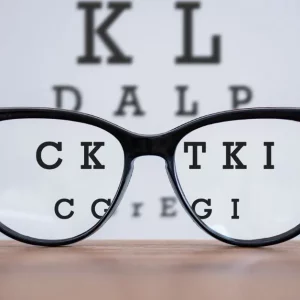Loss of taste and smell after a head injury is often overlooked by doctors. Most patients in the hospital do not initially realize that their sense of smell is diminished, and physicians are typically more concerned with their life-threatening injuries. As a result, many people do not receive a diagnosis for several weeks after their head trauma.
However, while losing your sense of smell might not appear serious, it can cause weight loss and other impairments to a person’s quality of life.
This article will explain the causes of loss of smell and taste after TBI. It will also show you what you can do to cope with these traumatic brain injury symptoms.
Use the following links to jump ahead to a specific section:
- Causes of Loss of Taste and Smell After Head Injury
- Areas of the Brain That Control Smell and Taste
- Disorders of Taste and Smell After Head Injury
- Complications of Loss of Taste or Smell After Head Trauma
- Treating Disorders of Taste and Smell
- Coping with Loss of Taste and Smell After Head Injury
Causes of Loss of Taste and Smell After Head Injury
Your senses of taste and smell are deeply linked to each other. In fact, taste buds in the mouth can only detect basic tastes. Instead, it is your nose that augments your taste buds and allows you to appreciate a full spectrum of flavors.
That explains why most people report losing both their sense of smell and taste after a head injury and not just one or the other.
Therefore, if your brain injury or concussion damages the parts of the brain that control smell, you may lose a significant amount of your tasting abilities as well.
Areas of the Brain That Control Smell and Taste

The chances of losing your sense of taste and smell after brain injury could be influenced by the area of the brain that was affected.
There are three primary areas of the brain that control your sense of smell:
- The orbitofrontal cortex, located above and behind the eyes.
- The insula, which lies beneath the ears.
- The piriform cortex, located between the other two.
Besides these three areas, there are smaller brain regions that also play a part in smell. These are collectively called the olfactory regions.
Finally, if the skull’s cribriform plate (the piece of bone directly behind the nose) is shattered, this could sever the olfactory nerves that connect to the nose. This can also lead to a loss of smell.
Disorders of Taste and Smell After Head Injury

Not all smell and taste problems are identical. In fact, a head injury can cause a variety of olfactory and gustatory disorders.
For example, some disorders of smell include:
- Anosmia: Total loss of smell
- Hyposmia Partial loss of smell
- Hyperosmia: Enhanced sense of smell
- Phantosmia: False or imaginary smells
- Dysosmia: Distortion of smells
When a person suffers from dysosmia, sour milk might smell fresh to them, or fresh flowers might smell rotten and dead.
In addition to smell disorders, there are multiple disorders of taste, such as:
- Ageusia. Total loss of taste.
- Dysgeusia. Distortion of taste.
- Parageusia. Tasting a bad taste in your mouth.
- Dysgensia. Persistent, strange taste.
These disorders of smell and taste can cause a number of complications after a head injury. We will take a look at those next.
Complications of Loss of Taste or Smell After Head Trauma
Loss of taste and smell can have a severe impact on daily life in ways most people do not realize. Some complications of losing your sense of smell include:
- Weight loss. Lack of taste can cause a decrease in appetite, which can lead to unhealthy weight loss.
- Food poisoning. Inability to smell spoiled food can increase your risk of food poisoning.
- Memory impairments. The olfactory bulb connects to the amygdala, the part of the brain in charge of emotions and personal memories. Without smell, therefore, the brain cannot encode as many memories.
- Fire hazards. Anosmia can impair a person’s ability to detect smoke and other harmful chemicals. This increases a person’s risk of injury.
- Depression. Losing the ability to taste and smell good food can cause a lack of interest in social gatherings and lead to depression.
These complications are difficult to overcome, but it is possible to manage them.
How to Regain Sense of Taste and Smell After Head Injury

Losing your taste and smell after a head injury or concussion can be a serious problem. One patient had such severe distortions of taste and smell that he could no longer eat solid food and had to be fed through a g-tube.
Fortunately, some medications, such as Gabapentin, have successfully treated people who experience bad or distorted tastes and smells after a head injury.
As far as treating total smell loss (anosmia) goes, there are not as many options, unfortunately. If brain damage has caused your anosmia, olfactory training may help.
Olfactory training involves smelling strong scents such as roses, eucalyptus, and lemon. This stimulates the olfactory nerves in the nose to retrain the brain to detect smells. However, it only has about a 30 percent success rate for people with brain injuries.
It’s also possible, however, that your smell loss is a result of damage to your nasal passages. If that’s the case, your anosmia is much more treatable.
Coping with Loss of Taste and Smell After Head Injury
If your sense of smell never returns, you will need to learn ways to live with only half your senses. This will be difficult, but not impossible.
The following are a few tips to help you cope with the loss of taste and smell after head injury:
- Try ice cube stimulation. Some patients report that sucking on an ice cube for one minute before a meal helped improve their sense of taste. In particular, it restored their ability to taste sweet foods. While more studies are needed to understand why this occurs, it might be something worth trying.
- Use seeds and nuts to add texture. While these will not restore your taste or smell, they can help your meals seem a little less bland. This may increase your appetite and help you regain lost weight.
- Throw out expired food. It is crucial to throw out food as soon as it hits its expiration date, since you won’t be able to tell when it is spoiled.
- Install smoke and gas detectors. This can prevent devastating accidents and is critical for patients who live alone.
- Use flavor enhancers. If your sense of taste is not totally absent, it might help to use flavor enhancers to make your meals more appealing.
While living without your sense of smell and taste can be frustrating, these methods can help make things more manageable.
Loss of Taste and Smell After Head Injury: Key Points
Loss of taste and smell after head injury can have a serious impact on a person’s quality of life. It typically occurs after damage to the parts of the brain in charge of smell, such as the olfactory regions.
While there are currently no proven treatments for anosmia caused by head trauma, olfactory training may prove useful. It’s also a good idea to talk to your doctor about your symptoms as soon as you notice them. New treatments for anosmia are on the rise, and your doctor might know of some that could help you.










